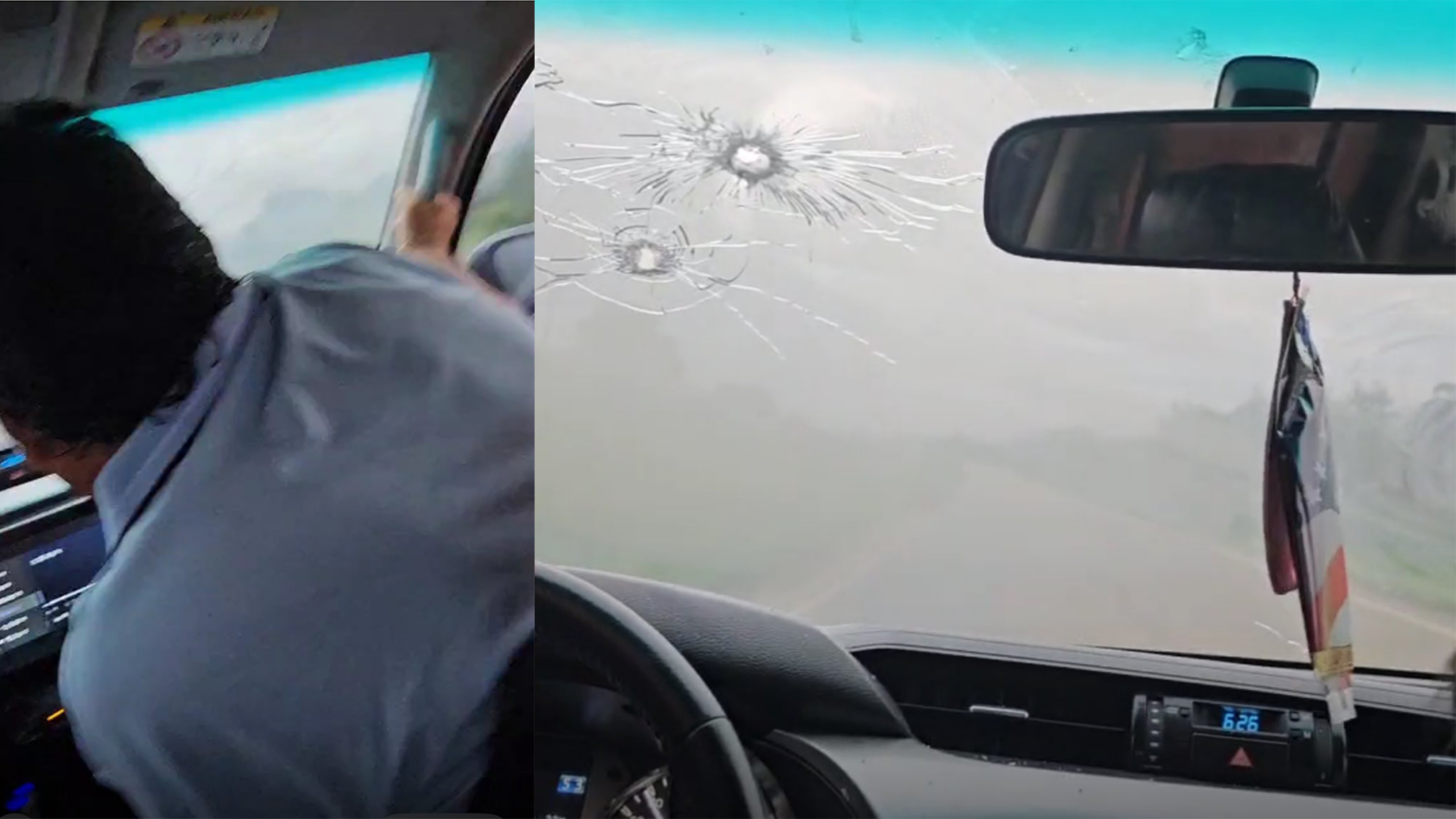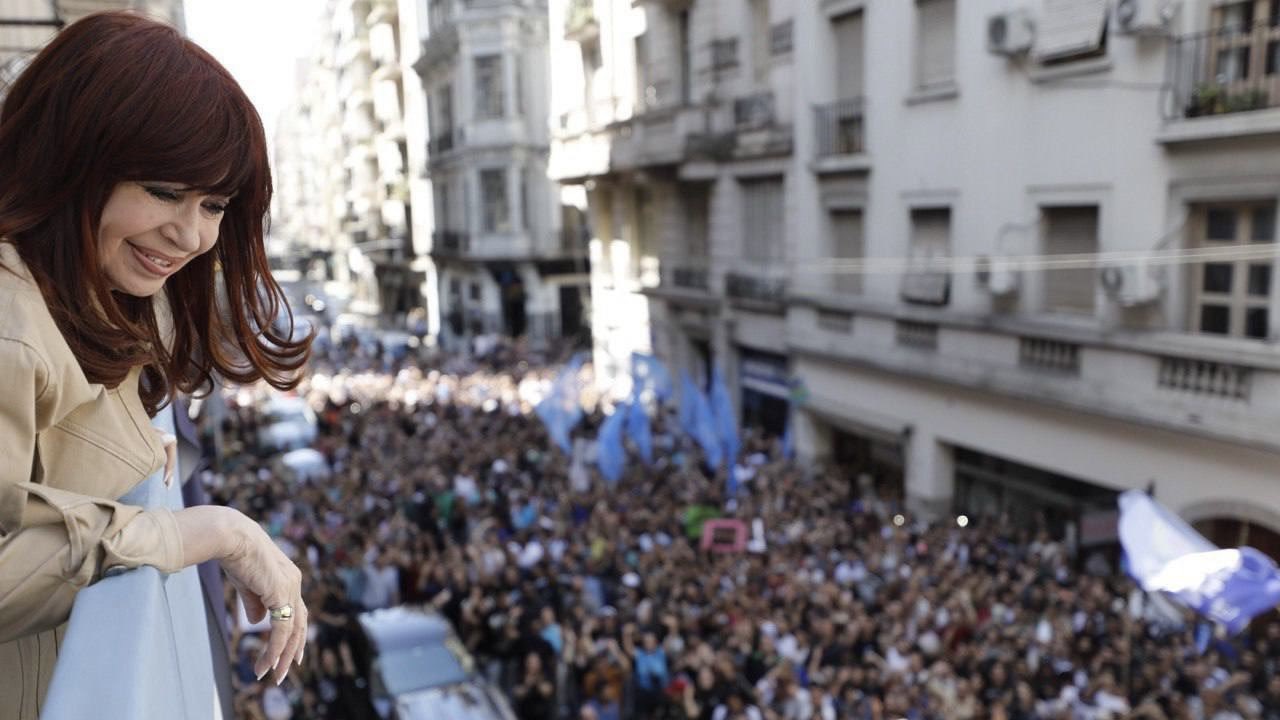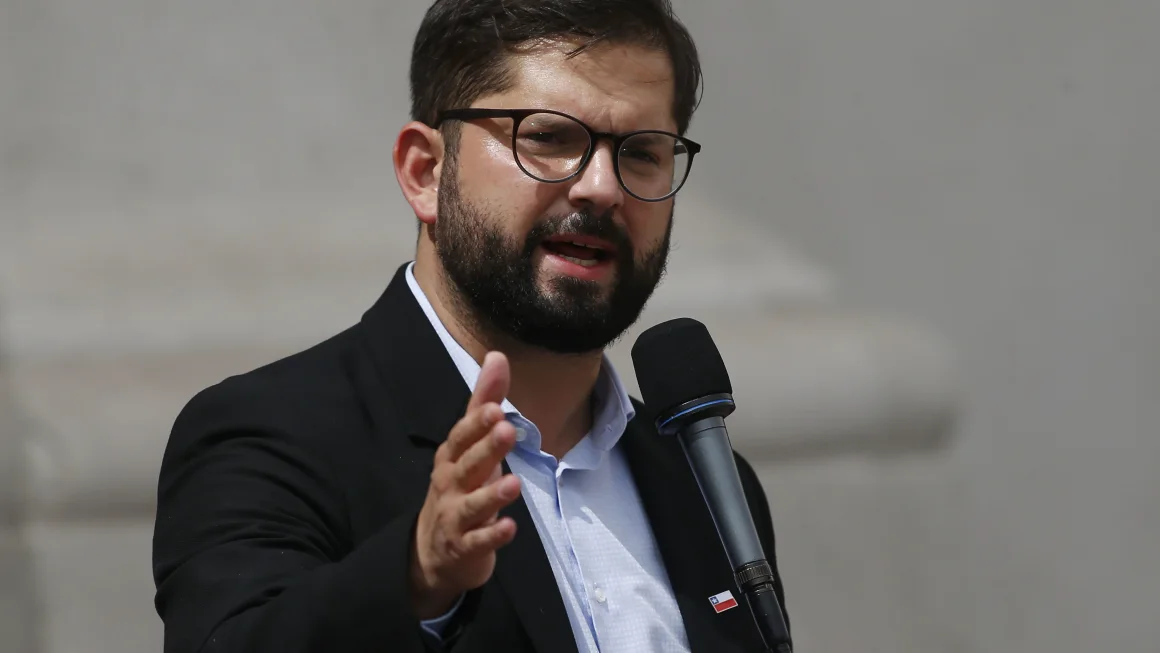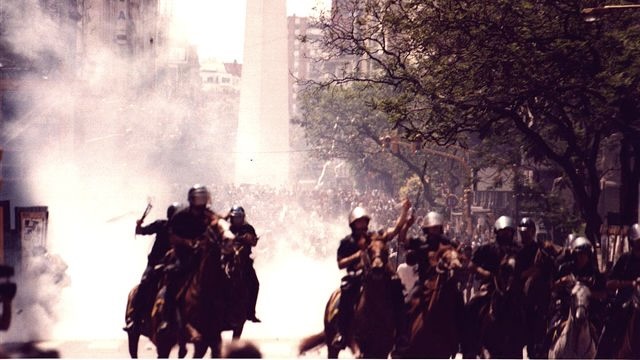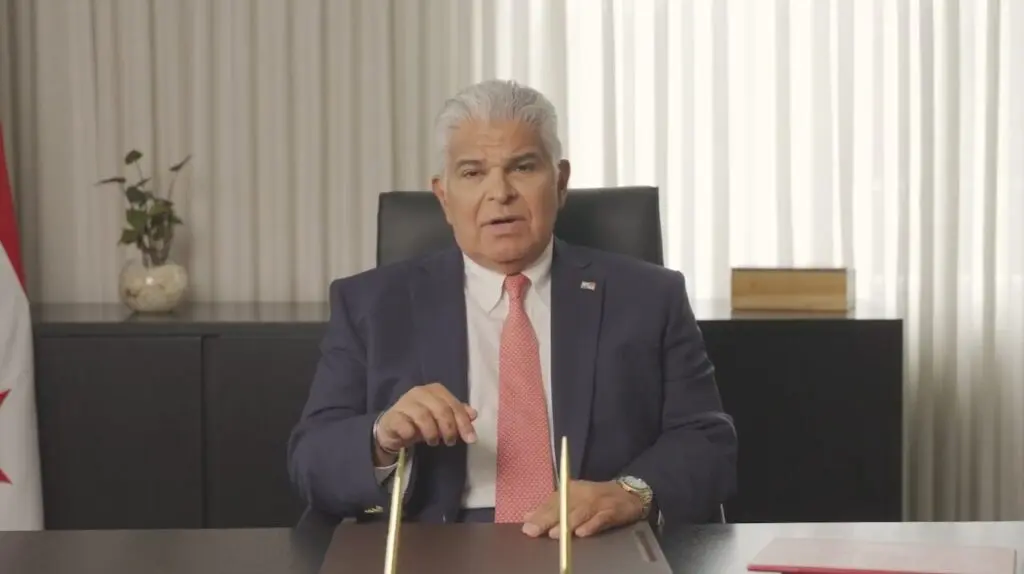Lawfare in Argentina: Cristina Kirchner Convicted
By Hernán Viudes - December 9, 2024 0

[Source: msn.com]
“What we are witnessing here today is a practical demonstration of Lawfare in Argentina, carried out by the members of the court,” announced Cristina Fernández de Kirchner as she was about to be convicted in the first instance.
Now, the Federal Criminal Court of Cassation—the highest criminal court in the country—has upheld the sentence against the former Argentine president: six years in prison and a lifetime disqualification from holding public office. The sentence pertains to the alleged crime of fraudulent administration in connection with public works carried out in the province of Santa Cruz during her presidency.
According to Silvina Romano, Ph.D. in Political Science and Coordinator of the Observatory on Lawfare, “Lawfare is a systematic process at the regional level, with even international implications, aimed at removing certain leaders and sectors from the formal political sphere, thereby eliminating their ability to engage in politics and contest the political arena. To achieve this, it employs the judiciary in coordination with the media.”
The ten business days available to the former president’s defense to appeal to the Supreme Court of the Nation are now underway. The highest court has no deadline to issue its ruling, but it will decide whether the conviction will be upheld and under what conditions it should be enforced—whether Cristina will be sent to prison or, at the very least, serve the sentence under house arrest.
“Currently, war is more effective if the adversary is annihilated without being killed. It is more efficient and less costly in terms of public opinion to weaken the political capital of the enemy, destroy their image and reputation, and limit their fundamental rights, be it their dignity or freedom,” concludes the Observatory’s report.
In fact, let us recall that, on September 1, 2022, an assassination attempt was made on Cristina Kirchner when a gun was fired at her head twice, but the bullets did not discharge. That case is currently in oral trial, but only the young individuals directly involved have been charged.
Those accused of financing and organizing the attack remain untouched. Cristina Kirchner has named key suspects who are now top officials in Javier Milei’s national government: Patricia Bullrich, Minister of Security; Luis Caputo, Minister of Economy; and Gerardo Milman, a national deputy for PRO, the party of former president Mauricio Macri, an ally of Milei.

Luis Caputo [Source: buenosairesherald.com]

Patricia Bullrich [Source: en.wikipedia.org]

Gerardo Milman [Source: pagsina12.com.ar]
Several members of the Caputo family have been accused of financing the attack; Bullrich is alleged to have organized it and reportedly “cleaned” Milman’s cellphone in her office. Milman himself, days before the attack, was overheard saying in a bar near the National Congress: “When they kill her, I’ll be on my way to the coast [beach].” The Argentine judiciary has ensured that none of them will be held accountable for these events; they have not even been summoned for questioning.
A number of former presidents and social leaders from around the world have condemned the sentence against Cristina Fernández. “We express our absolute rejection of the political, media, and judicial persecution to which Cristina Fernández de Kirchner is being subjected. The conviction aims to eliminate from political life the twice-elected president and former vice president of Argentina, as well as the values and ideals she represents,” they stated.
Among the signatories are presidents Luis Arce (Bolivia) and Xiomara Castro (Honduras); former presidents Rafael Correa (Ecuador), Evo Morales (Bolivia), Ernesto Samper (Colombia), and Manuel Zelaya (Honduras); Spanish jurist Baltasar Garzón; and former Bolivian vice president Álvaro García Linera, among others. They further emphasized: “This case is part of a systematic plan of persecution, orchestrated by political, media, and judicial sectors, with the purpose of disqualifying her and promoting discourses of hate and violence.”
• There is no connection between Cristina Kirchner and the public works tenders.
• The competitors testified in court and acknowledged that Lázaro Báez—also convicted—won the tenders at the time due to his knowledge and the structure of his company, as he is from the area.
• No other company reported being excluded from the tenders.
• There was no steering of the tenders.
• The General Audit Office and the National Road Agency ruled out irregularities.
• Congress passed the law at the time to allocate public works, and no legislator was charged.
• Neither the Chief of Staff nor the Minister of Public Works was convicted in this case.
The mainstream media in Argentina created the climate that associates Cristina Kirchner and “the Kirchners” with corruption. In some Latin American countries, the concept of “Lawfare” has become more or less embedded in political discourse. Argentina is one of those places where it has gained significant traction in academic, political, media, and even governmental institutional circles.
On the front pages of the two most important national print newspapers (Clarín and La Nación) and on the main page of the most visited news website (Infobae), between May 1 and November 30, 2022 (214 days), the following appeared:
• Infobae: 45 results for “Vialidad case August 2022”
• Clarín: 21 headlines in the printed edition August 2022
• La Nación: 19 headlines in the printed edition August 2022
According to a study conducted by the Latin American Strategic Geopolitical Center (CELAG), regarding the Degree of Negativity of the Headlines, the value for all three media outlets is very high. In Clarín, 73% of the headlines about CFK are negative; 80% in La Nación; and 45% in Infobae.
2025: An Election Year
Next year, there will be mid-term parliamentary elections, and Cristina could potentially run for national deputy. As of now, she can do so because the conviction is not final, and it is almost impossible for it to be finalized before the elections. If that happens, she would likely be elected and could obtain legislative immunity. Legally, it would be completely legitimate, but this would spark a strictly political debate on whether or not she is entitled to this protection to avoid jail. Since this case is political rather than legal, nothing can be guaranteed.
That is why the party of former president Mauricio Macri—PRO—allied with the government of Javier Milei, has proposed a law called “Clean Record” (Ficha Limpia), similar to the one passed in Brazil during Lula da Silva’s previous administration: a citizen who has any ongoing legal proceedings would not be allowed to run for office. Who was imprisoned in Brazil under this law? None other than Lula himself. In Argentina, they want to pass a tailor-made law and apply it retroactively against Cristina Fernández. Is it legal? No, but since the prosecution is political, anything could happen.

Right wingers Mauricio Macri and Javier Milei greet each other warmly. [Source: tiempodesanjuan.com]
Eugenio Raúl Zaffaroni, former member of the Argentine Supreme Court and the Inter-American Court of Human Rights, stated: “The ‘Clean Record’ (Ficha Limpia) project is completely unconstitutional. Disqualification is a penalty, and as such, it can only be imposed after a final sentence, not on someone merely under investigation, because anyone can be processed—things can be fabricated against us, and ‘prima facie,’ it may appear that we are guilty…Until there is a final sentence, no citizen can be deprived of their right to run for office. The ‘Clean Record’ law is what Lula da Silva implemented in Brazil, it was enacted, and then applied to him. I believe that our politicians, regardless of their political affiliation, should be very careful not to commit this unconstitutional blunder. Today it can be applied to some, but tomorrow it could be applied to them.”

[Source: eisatodario.com]
In this case, the Supreme Court would also decide. The judiciary is a branch co-opted by the right wing in general, and by Mauricio Macri in particular. It is anti-Kirchnerist and anti-Peronist. The president of the Criminal Cassation Court, Gustavo Hornos, visited Mauricio Macri six times at the Casa Rosada when he was president; each time, immediately after, a ruling against Kirchner was issued. Of the four members of the Supreme Court, two are directly linked to PRO and were appointed by Macri during his presidency in 2015. After the political scandal this caused, the appointments were later approved by Congress.

Gustavo Hornos [Source: chequeado.com]
The major media outlets play two central roles in this system: They are the initiators of persecutions through “media denunciations” on television channels or on newspaper front pages, or they act as amplifiers of unfounded judicial accusations that certain individuals—typically the same ones—have previously filed in the federal courts.
Then, all the cases end up in the same federal courts. It does not matter whether the accusation is true or not. The amount of evidence available is of little importance. The sources are not crucial. The only thing that matters is whether the accusation is plausible, or at least whether it can be presented as such to the viewers. The legal case is initiated, the damage is done; the political leader will be persecuted by the “Justice” system, and this will have a disciplining effect on other leaders who might consider implementing public policies that challenge economic powers.
This has happened with former presidents in Latin America; it is happening now to Cristina Kirchner, and in the future, it will be suffered by other social leaders who dare to present political projects that challenge the interests of large economic groups, always linked to transnational powers.
https://covertactionmagazine.com/2024/1 ... convicted/
******
First Year of Javier Milei’s Economic “Miracle”: Plunging Inflation, Surging Poverty, Rising Inequality and Slumping Industry
Posted on December 13, 2024 by Nick Corbishley
“The deep chainsaw is coming” in the second year.
After a year in power, Argentina’s faux libertarian President Javier Milei may not have burnt down the country’s central bank or dollarised Argentina’s economy, as he repeatedly promised he would do on the campaign trail. Nor did he get rid of taxes; in fact they went up sharply. But he has kept his word on one of his main pledges by unleashing the figurative motosierra (chainsaw) on government spending. And support for his government is still strong.
Despite having implemented the largest financial adjustment in Argentina in over 60 years, with excruciating effects for many of the country’s most vulnerable sectors, Milei’s approval numbers are, bizarrely, the best in the first year of any president since 2001. As the Argentine journalist Ernesto Tenembaum writes, “something very profound has happened in Argentina’s society for this to be happening.”
Milei has promised more of the same for the year ahead. “The deep chainsaw is coming,” he warned during a celebration of his first year in office. This new chainsaw, he said, will be all about “dismantling geological layers of statism” through the elimination of public agencies, secretaries and undersecretaries.
“The Biggest Budget Adjustment in Human History”
In one year, Javier Milei has abolished half of Argentina’s existing ministries, fired 33,000 civil servants and slashed public spending by 35% compared to the previous year. To achieve what he likes to describe as “the biggest budget adjustment in human history,” the Argentine president has cut pensions, social benefits, public sector salaries, and transportation and energy subsidies. He has also suspended all public works and minimized transfers of resources to the provinces.
Milei has managed to do all of this despite the fact that his party does not control either of Argentina’s legislative chambers, which in and of itself is an accomplishment. It is also a reflection of just how little actual opposition Milei faces in the country — a point that fjallstrom astutely raises in the comments below.
Also, Milei has been able to unleash this brutal fiscal adjustment while maintaining strong levels of public support. One recent poll by the University of San Andrés showed an approval rating of 54% following an 8-point increase since September. Perhaps the economy has bottomed out, and people are beginning to feel the benefits of lower inflation. Perhaps they are just so desperate for change that they are willing to give Milei a little more time. Or perhaps, to borrow from George Carlin, this is just another example of “good, honest, hard-working people continuing to elect rich c*cks*ckers who don’t give a f*ck about them.”
One thing that is clear is that a slim majority of Argentineans have had more than enough of the status quo, as we noted in our article on Milei’s crushing electoral victory 13 months ago:
According to a close friend living in Buenos Aries province, the word one keeps hearing is “change” (sound familiar?), which is perhaps understandable given the dire state of the economy, the high levels of child poverty (67%) and the woeful performance of Alberto Fernández’s outgoing government. What people want is a seismic shift in the underlying political and economic dynamics. And that is what they will get, for better or worse (my money is on the latter). And the reverberations will reach far beyond Argentina’s borders.
Milei’s chainsaw approach has certainly earned him plenty of plaudits among the plutocratic class, both inside and outside Argentina — including Elon Musk, who will soon be heading up the US’ Department of Government Efficiency (DOGE) alongside Vivek Ramaswamy:
Wow, congratulations @JMilei 

 https://t.co/XtuVMZnfAt
https://t.co/XtuVMZnfAt
— Elon Musk (@elonmusk) December 11, 2024
There has is even speculation that in his new role Musk will take inspiration from Argentina’s ruthless culling of government ministries. In mid-November, just days after Trump’s re-election, Milei said the tech billionaire had already been in contact with Argentina’s Minister of Deregulation and State Transformation (and former central bank governor), Federico Sturzenegger, with a view to carrying out measures similar to those applied in Argentina.
Milei’s most important accomplishment over the past year has been a sharp, sustained fall in monthly inflation, from 25% in December 2023 to 2.4% in November 2024. It’s a useful economic lesson: if you want to crush inflation, just kill the economy. There are other contributing factors to the sharp fall in inflation, such as the government’s decision to freeze the central bank’s monetary issuance as well as certain high-risk financial moves we’ll look at a little later.
Despite all of this, prices are still around 160% higher than they were when Milei took office. More pertinent still: was the brutal price for this sharp reduction in monthly inflation worth paying? That, I suppose, depends who you ask.
Rising Inequality. In his first months in power, following a 50% devaluation in the peso, Milei allowed inflation to eat into the real value of pensions and salaries. The result has been surging poverty. Between December 2023 and June 2024 more than five million fell into (real) poverty, according to the National Institute of Statistics and Census (INDEC). The official poverty rate soared over 11 points in the first six months of 2024, reaching close to 53% of the population (some 25 million people), the highest figure in two decades.
Inequality is also surging, as was eminently predictable. For the richest 20%, the fall in real incomes was smaller than the average, while the poorest 20% suffered the sharpest decline. The Gini coefficient, the most commonly used measure of inequality, was 0.436 in the second quarter of 2024, up from 0.417 a year earlier. Of course, this is not all Milei’s doing. Surging inflation had already decimated Argentines’ spending power long before he took over, though his policies have certainly turbocharged inequality.
No V-Shaped Recovery. In their first months in office, Milei and his Economy Minister Luis Caputo insisted that the economic pain would be short-lived and that the economy would begin recovering by late spring/early summer. That hasn’t happened. According to the OECD’s latest forecast, the economy will end up contracting by 3.8% this year — 0.5 percentage points more than it had predicted in May. If so, Argentina is on track to suffering the sharpest contraction of any economy in Latin America, including war-torn Haiti.
Slumping Industry. In theory, economic shock treatment is supposed to work in the private sector’s favour. The question is: whose private sector? And which part of the private sector? As the Argentine economist Guido Agostinelli recently told the Brazilian-Mexican podcaster Diego Ruzzarin, the three industrial sectors that have grown the most over the past year — agriculture, mining and oil and gas drilling — are all generally extractive in nature:
“They introduced big incentives for foreign companies to come, invest and extract… By contrast, industrial manufacturing is slumping.
The Utilisation of Installed Capacity index perfectly illustrates the state of Argentina’s manufacturing industry, says Agostinelli. The current reading is 55%. To put that in context, it is roughly the same as the average level recorded during 2020, the year of COVID-19 lockdowns when economic activity worldwide fell off a cliff. Many companies have already fallen by the wayside. As of mid-November, 16,500 small and medium-sized enterprises had closed, according to the National Productive Front. From Ambito (machine translated):
The collapse in domestic consumption (NC: estimated at around 20%), the increase in service costs and the difficulty in exporting due to an uncompetitive dollar are three of the main factors behind this worrying trend. The CAME estimates a 13.2% drop in sales of SME businesses, an alarming figure that reflects the impact of the recession on consumption.
This figure is supplemented by the closure of 10,000 kiosks and warehouses and the loss of 160,000 jobs in the sector. The crisis deepened in the second half of the year, according to the Association of National Businessmen and Women for Argentine Development (ENAC). Between July and October, another 6,500 companies stopped operating, adding to the 10,000 that had already closed in the first half of the year.
Fiscal Balance. The Milei government achieved its first primary surplus (the difference between the State’s current revenues and expenditures) in its first full month in office and has kept the fiscal balance in positive territory until October (the latest available data). It has also maintained a financial surplus (the primary result minus the payment of debt interest) for 9 of the 10 months of 2024 — a rare achievement for an Argentinean government.
But it has been at the highest of costs.
Who Is Really Paying the Price?
“This time it’s going to be different. Because the people are not going to pay for the adjustment. The caste is going to pay for it.”
Milei conveyed this message repeatedly on the campaign trial. It was a lie. Just as Trump said he would drain the swamp, only to proceed to fill his first government with some of the worst swamp creatures imaginable (Mike Pompeo, Bill Barr, John Bolton…) Milei pledged to make the “caste” pay for Argentina’s economic transformation, and then filled his cabinet with caste members like Patricia Bullrich and the former JP Morgan banker, Luis Caputo, both of whom were ministers in the Macri government.
As I wrote in my article, “Who Is Luis Caputo, Argentina’s New Economy Minister (Who Is Already Making the Economy Scream)?”, few epitomise the “caste” better than Caputo:
Caputo began his career as an investment banker, first as chief of trading for Latin America at JP Morgan Chase (1994-8) before slotting into a similar role at Deutsche Bank (1998-2003). He was later appointed chairman of Deutsche Bank’s Argentine subsidiary. In more recent years, he has managed his own investment fund and sat on the board of an Argentine energy company.
But what interests us most in this instance is Caputo’s brief period in the public sector, which began in 2015. First, Macri appointed his old school chum as secretary of finance, only to bump him up to finance minister and eventually central bank governor, all in the space of just three years. During that time, Caputo held more sway over Argentina’s economy than just about anybody else in a government position. And it was during that time that the seeds of Argentina’s current crisis, including its out-of-control inflation, were sown.
So, if the caste isn’t paying for Argentina’s economic purge, who is? No prizes for guessing: Society as a whole, in particular the most vulnerable. At the sharpest end, in some cases quite literally, are grandpa and grandma. From our previous piece, No Country for Old Men (or Women): Pensioners in Argentina Bear Brunt of Milei’s Hardcore Austerity:
Freedom is on the advance in Javier Milei’s Argentina, as perfectly illustrated [by recent scenes] of state security forces beating up pensioners in the street and blasting them with pepper spray and tear gas. Every Wednesday…, thousands of pensioners congregate outside Congress to protest the rapid loss of purchasing power of their pensions, as the Milei government’s economic shock program continues to, quite literally, bite.
“They are killing us,” one elderly lady cries. “Why? We are just pensioners. One of these brutes just punched an old lady.” In the same video, another grandmotherly protester is asked if she is afraid of the violence , to which she responds:
Afraid? If you are afraid, it paralyses you (NC: otherwise put, “Fear is the mindkiller”). You have to fight for your rights. Lots of blood has flowed for those rights.
When the Congress recently proposed a modest increase in the pension, Milei used his veto powers to block it. In recent days, he has heaped even further pressure on the elderly by cutting the subsidies on essential medicines for many retirees. A few days ago, a seventy-year old man with a terminal illness doused himself with gasoline and tried to set himself on fire outside an office of the National Institute of Social Services for Retirees and Pensioners. As Tenenbaum writes, the main brunt of the economic pain is being borne by the elderly (machine translated):
Last Thursday, Economy Minister Luis Caputo, in response to a question from Luis Novaresio, explained that he cannot be held responsible for retirees who receive the minimum [pension] because ninety percent did not make all the contributions… But he also maintained that incomes are twenty percent higher than on the day of his inauguration and that only eleven percent of retirees are poor. Absurd. According to INDEC, the number of people over 65 living below the poverty line is 30 percent, and not 11 percent. It is also not true that retirees earn 20 percent more than in December 2023. If assets plus the bonus, which was frozen, are computed, retirement benefits, rather than increasing by 20%, have actually fallen by 13%.
Increased Spending on Military. The Milei government’s austerity program is not being applied across the board. Readers will no doubt be surprised to learn that one of the few areas where spending is rising sharply is defence and security. According to the draft General Budget Law of the National Administration for Fiscal Year 2025, some US$ 6.2 billion (6 trillion pesos, at the official exchange rate) will be allocated to Defence and Security Services, representing 5.1% of the total budget.
This trend is likely to continue for as long as Milei is in power. If the 2025 budget is approved and the projections are fulfilled, spending on Defence and Security in Argentina is forecast to climb to between 0.8 and 1% of GDP. But that is still well short of the 2% threshold recommended by the North Atlantic Treaty Organization, NATO, of which Milei is determined to secure membership for Argentina as a global partner.
So, while many Argentine retirees have to choose between food or medicine, the amount of public funds earmarked for US and European-made weaponry is almost certain to grow. The government has also proposed creating a security agency to implement AI-driven “pre-crime”, which is about as far removed as government policy can possibly get from the basic principles of liberalism or libertarianism. From the government’s official bulletin (26/11/24):
That the advancement of technology, in particular Artificial Intelligence, represents one of the most relevant socio-technological changes for the general population.
That countries such as the United States of America, China, the United Kingdom, Israel, France, Singapore, India, among others, are pioneers in the use of Artificial Intelligence in their areas of government and Security Forces.
That the aforementioned countries use Artificial Intelligence in Video Analysis and Facial Recognition, Crime Prediction, Cybersecurity, Data Analysis, Drones and Robotics, Communication and Coordination, Virtual Assistants and Automation, Social Network Analysis and Fraud and Anomaly Detection.
US investigative journalist Whitney Webb has drawn comparisons with the first Trump administration’s legislative push to legalise pre-crime in the US, as well as the ways in which Palantir co-founder and Trump-backer Peter Thiel stands to benefit from that push. Thiel, like Milei, tries to paint himself as a libertarian these days while espousing the benefits of monopolies — again, in contravention of basic libertarian principles.
For those that don't know, pre-crime was technically legalized under the last Trump administration via former AG Bill Barr. (Policy was continued and arguably expanded under Biden). JD Vance's benefactor Peter Thiel has major ties to firms seeking to implement pre-crime in the…
— Whitney Webb (@_whitneywebb) November 19, 2024
Economy Not Out of the Woods Yet
While the Argentine economy is showing tepid signs of improvement — according to estimates by the Argentine Catholic University, poverty may actually be falling while other data suggest that economic activity is finally picking up, albeit only in certain sectors (mining, energy and agriculture) and regions — and the country risk index, measured by JPMorgan, has reached its lowest level since April 2019, it is not even close to emerging from the woods.
For a start, the country still owes $31 billion to the IMF — equivalent to 5% of GDP. In the next year alone, Argentina’s treasury must make $11.29 billion of debt payments, and to do that it must accumulate enough US dollars. In November, Caputo and the IMF announced that they were in early talks about a potential new debt agreement.
Meanwhile, there’s still no word of when Argentina’s all-important cepo currency controls will be lifted. While lifting those controls could lead to a run on the peso, failure to lift them will make it harder to attract new foreign investment. Given how much US-denominated debt Argentina must repay next year, foreign investment is desperately needed.
The government and central bank were able to get enough dollars to keep themselves going this year through three main measures: a one-off ‘blanqueo de capitales’ (assets amnesty for capital repatriation), which brought in a reported $23 billion; the pawning of a large chunk of Argentina’s gold reserves, which has been conveniently forgotten in recent months; and a high-risk financial manoeuvre called the “financial bicycle,” which essentially encourages traders to engage in high-risk carry trades and is costing the government a fortune.
From El País:
If you are Argentine and can save, you will almost certainly do so in dollars. But imagine the government tells you that it will depreciate the peso at a rate of 2% per month. But if you buy pesos, it will pay you between 4% and 5% interest on them monthly. Your financial advisor will then recommend a very simple operation: exchange your dollars for pesos, buy bonds with those pesos or put them in a fixed term interest account, and buy dollars again once the difference has been harvested at the end of the month.
The difference between the peso depreciation promised by the government and the interest rate you will have received will determine your profit margin. It sounds like a tongue twister, but it is an operation with a name and a surname: In Argentina, it is known as the “financial bicycle”; traders prefer to call it carry trade. It involves investors buying riskier currencies in the hope of pocketing enough interest to more than cover exchange rate losses.
The carry trade was a classic investment model during the Argentine dictatorship of the 1970s, revived in 2016 with Mauricio Macri, and now back again with the far-right leader Javier Milei. Argentines who have “ridden” the bicycle have gained up to 50% profit in dollars over the space of 10 months, another miracle to emerge from the Argentine macroeconomic meltdown.
The financial bicycle has not only brought in a substantial haul of dollars for Argentina’s central bank, it has also helped to “flatten” the dollar, which in turn has helped to bring inflation (in pesos) down. But it cannot go on indefinitely. For a start, it’s hugely expensive, having so far set the government back an estimated $100 billion. It is also riddled with risks:
The government and its supporters maintain that the dollar fell because there was fiscal adjustment, there is no more issuance, and therefore there are no pesos left over to put pressure on the demand for foreign currency. However, this coexists with another phenomenon. The same government offered exorbitant rates – 45 percent per year in dollars – for investors to sell dollars in exchange for buying government bonds that would pay for that fortune. That happened. And so the dollar collapsed. It’s called a carry trade and it has always ended badly.
In addition, the cheap dollar is beginning to generate classic and rapid effects on the deterioration of the external accounts, which will deepen as time progresses. Thus, while some hope that a new cycle has just begun in Argentina, others believe that what has happened so many times before will once again be repeated: inflation is controlled thanks to the cheap dollar, which is financed unsustainably with debt or scarce resources, and which is crippling the country’s productive structure.
At the end of the road, for some, there is prosperity.
For many others, there is plain old misery. .
https://www.nakedcapitalism.com/2024/12 ... ustry.html
